|
Today’s topic is Pray and today’s post is from Geoff Mitelman, Founding Director of Sinai and Synapses.
“To pray is literally, li’heet’pah’lel: “ to judge or examine yourself.” As we pray in these High Holy Days, what’s the method by which we want to judge or examine ourselves?
0 Comments
Today’s topic is Return.
When I was a kid, my family would go to the beach in the summer. After checking the newspaper in the morning for the tide times (old school, I know), we would make our way to the beach and set up our blanket for the day. My siblings and I loved low tide, when we could walk far out in the shallow water and play in the sandbars. As a kid, the tides of the ocean seemed like magic, how every day, offset by one hour, the tide would rise and fall. Of course, the tides aren’t actually magic, there is a scientific reason they return to high and low positions every day--it’s because of the gravitational pull of the moon as the Earth rotates. Each year we return to our new year because of the Earth’s rotational pattern, as well. The Earth returns in its cycle around the Sun each year, and we celebrate Rosh Hashanah each fall. Today’s topic is Commit.
Commit is an interesting word with many different meanings. When you’re working on a product or piece of software, committing is the process of adding the most recent changes to the overall system or repository and updating the version number to reflect those changes. After committing, other members of the team can see the changes that have been made and make sure all of their versions are updated as well. A great example where we can see this is in an app update on your phone. Before you receive an update the developers are working behind the scenes to make changes to the app. Once all the changes are ready the developer commits to changes to the system and launches the update which you see on your phone. This weekend we will be committing the year 5781 and making it the most up to date version in the repository of history. Today’s topic is Choose.
We make choices all day long: like what to say, wear, eat, where to sit to Work from Home, or who to call when we have a few minutes of free time. We can choose to scratch that itchy mosquito bite or not, and we can choose to research how to treat it. The science of choice is actually many types of sciences! Choices relating to consumerism and product production are economics, while personal choices are psychology. Changing your decision-making habits can call upon neuroscience and even chemistry or biology to work with your body's natural rhythms. To choose anything is a deeply scientific process, embedded within our brains and bodies. When you choose, what do you consider? How do you choose your choices? 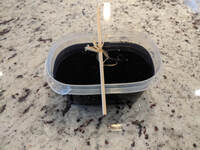 Today’s topic is Speak. This is the final week of Elul and also the final week of our first #ExploreElul! As we approach the start of Rosh Hashanah on Friday this final week also aligns with the days of the Creation story, with today, the 25th of Elul, regarded as the first day of the story. Throughout the story, each new thing is created after G-d speaks the words to do it. In the beginning there was nothing as G-d spoke everything into existence. Speaking is a powerful tool in what each of us can create in this world. As part of this Creation week we are doing a creation experiment, growing our own sugar crystals. Check out our posts each day this week to see how the sugar crystals are growing. The procedure for the experiment is included below so you can grow your own sugar crystals alongside ours! Be sure to use proper safety procedures and tag @jedstem and #ExploreElul in your post! Materials Need:
Procedure:
Today’s topic is Create.
In the Creation story, G-d creates the world simply through words: “G-d said, ‘Let there be light!’” Coding is also creation through words, although they aren’t always recognizable in a language we might speak. Coding languages allow us to tell computers to do a series of tasks, and depending on the computer, can cause a page to print, or even a production process to begin. Coding can also be a fickle thing, because your language has to be precise in order to create the exact chain you want. If you mistype or leave out even the slightest step, you will end up with an entirely different outcome. With this mind to precision, what are you looking to create this year? What steps do you need to take to have it take shape? Today’s topic is End.
What is an ending? Is the work ever finished? At the start of #ExploreElul we talked about the Design Thinking Process and how you can keep iterating on your designs to continue to improve them. This process of continuous improvement, or Kaizen in Japanese, is common within the manufacturing industry (and is also one of Trader Joe’s 7 Core Values). The Kaizen philosophy is one of improvement to every aspect of an organization from the newest employee to the longest tenured through improved efficiency and teamwork. The goal is Kaizens is to make everyone’s life easier, safer and more fulfilling. Businesses aren’t the only ones who can use Kaizens. If we keep an open mind we can find ways to improve not only our lives but those around us. Today’s topic is Love
Drs. John and Julie Gottman are researchers who have dedicated years to the study of relationships. Specifically, Dr. John Gottman has spent time focusing on marriage stability and noting patterns that lead to the dissolution of a marital relationship. Through this research of what not to do, the Gottmans now run the Gottman Institute and dedicate themselves to working with people (couples, parents, and professionals) to help them strengthen their relationships and work through conflict productively. One thing the Gottmans’ note is that conflict is inevitable! Instead of shying away from disagreement or frustration, they teach that there are ways to process these feelings and come to a solution. As we navigate asking for forgiveness from those we have wronged in the coming days, the Gottmans remind us to be free of the Four Horsemen of the Apocalypse communication patterns, and counteract them with the Antidotes: gentle starts, culture of appreciation, taking responsibility, and taking breaks. In this way, we can communicate with our loved ones and begin the new year afresh. Today’s topic is Fill and today’s post is from Rachel Shapiro, former Assistant Director at the URJ 6 Points Sci-Tech Academy West and currently a PhD student at Johns Hopkins.
There is a midrash that states that, before God created the world, there was just God and it filled every space. In order to begin creation, God had to contract, or tzim tzum, to make space and create the world, which some may believe to be close to miraculous. Our biology also performs contractions that lead to the seemingly miraculous - walking, taking a breath, closing our arms to hug a friend. These contractions allow us to live full, connected, and grateful lives. How can you find fullness in contraction and making space? Today’s topic is Awaken and today’s post is from Jamie Field, 2nd year rabbinical student at HUC.
I have three modes of waking up in the morning. Sometimes, when I have a particularly exciting day ahead (like my birthday, or the first day of school), I can jump out of bed, hop in the shower, and begin my day full steam ahead. Sometimes, I’ll wake up anxiously, grab my laptop from next to my bed and immediately check all of my emails, stressed about what I could’ve missed in my 8 hours of sleep. Other times, I have a lazy morning and stay in bed for a couple of hours before I decide what snack is going to convince me it’s worth leaving the blankets. The month of Elul, which is the Hebrew month leading up to the Days of Awe, give us a chance to metaphorically wake up in all of these ways. As we reflect over the past year, we have the opportunity to jump out of old habits right away, and immediately prepare for ways to grow and learn as we strive to become our best selves. Other times, thinking of the things we have said or done can cause anxiety. I often have to remind myself that it’s alright to sit in that anxiety, to recognize the things I have said or done that I regret. Being uncomfortable can give us a chance to truly come to terms with our actions, and that can kickstart a path to change. Reflecting on the past is also an opportunity to think of the things we have done right and what ways we want to continue being the person we are before. We’re all full of dichotomies, good and bad, right and wrong, and acknowledging the good we have done in the past year can help propel us into doing more good in the coming year. If Rosh Hashanah is the official start to the day, Elul is changing from pajamas into clothes and getting ready. Waking up on some days is harder than other days, but, luckily, Judaism allows us to have an entire month to prepare for a meaningful year ahead. |
AboutJEdSTEM aims to develop engaged, curious, and innovative Jewish minds for the modern world. Archives
February 2022
Categories
All
|
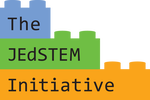
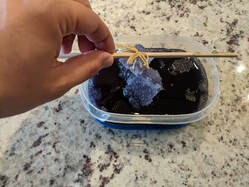
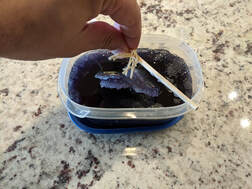
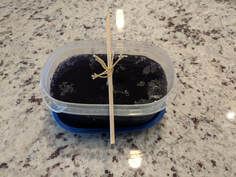
 RSS Feed
RSS Feed